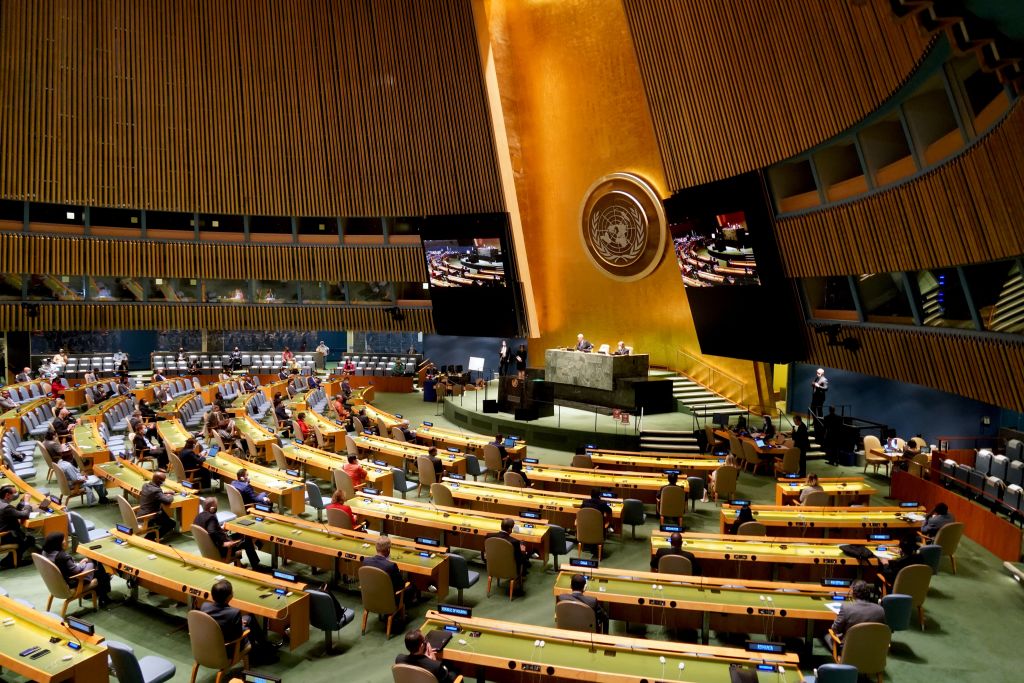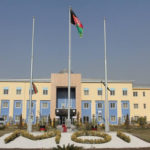The United Nations, beginning with 51 signatories at the end of World War II, has now grown to be a 193-nation body. As it celebrates its 75th founding anniversary, the organization and multilateralism it represents are facing unprecedented challenges with the rise of unilateralism and protectionism.
The challenges are being compounded by COVID-19, which has infected more than 31 million people and taken over 960,000 lives worldwide.
“What kind of UN does the world need and what role should it play in the post-pandemic era?”
Chinese President Xi Jinping raised the question and made proposals on Monday when addressing the high-level meeting to commemorate the 75th anniversary of the UN via video link.
The UN should uphold justice as countries, regardless of their sizes, are equal and should respect each other, Xi said, noting that this is a requirement of the progress of the times and the most important principle in the UN Charter.
The organization should be committed to achieving shared growth through consultation and collaboration, he stressed, calling on countries around the world to maintain common security and share the fruits of development.
Xi called for increased representation and a louder voice for developing countries in the UN and upholding the purposes and principles of the UN Charter.
He said the UN should promote international cooperation and lead efforts to solve various problems in the world. It should advance security, development and human rights in a balanced manner and give more emphasis to development on its global agenda, he added.
Uphold multilateralism, enhance cooperation
“During the 75 years of the UN, the world has seen rapid progress of the human society, profound changes in international situations and fast development of multilateralism,” the Chinese president said.
He reiterated China’s commitment to multilateralism and determination to safeguard the international system with the UN at its core.
As the international community strives to find solutions to problems faced by mankind, “multilateralism” has been a buzzword during the 75th session of the UN General Assembly that opened last week.
UN Secretary-General Antonio Guterres urged world leaders to work together at a time when there is a surplus of multilateral challenges and a deficit of solutions. “The future we want, the United Nations we need, is reaffirming our collective commitment to multilateralism is under way,” he said.
Indeed, the need for more – and more effective – multilateralism is well known, he said, stressing that national sovereignty – a pillar of the Charter of the United Nations – goes hand‑in‑hand with enhanced international cooperation, based on common values and shared responsibilities for progress.
Russian Foreign Minister Sergei Lavrov said the international community is becoming increasingly fragmented, adding that “this is largely attributable to the fact that some countries are meddling in the domestic affairs of other states and imposing unilateral sanctions.”
“The world is tired of dividing lines, of separating states into friends and foes, and demands stepping up all-encompassing and inclusive mutual assistance and cooperation,” he said.
German Chancellor Angela Merkel said the interests of individual member states had “too often” forced the UN to lag behind its ideals.
“Those who believe that they can get along better alone are mistaken. Our well-being is something that we share – our suffering too. We are one world,” she told the General Assembly.
While customs and cultures may differ, cooperation requires unstinting efforts to overcome misunderstanding, and beyond that, to embrace respect, European Council President Charles Michel noted.
“It is not our rhetoric that will matter,” he said, but rather, the collective actions taken to foster a better world.
The theme of this year’s UN high-level sessions is “The Future We Want, the UN We Need: Reaffirming Our Collective Commitment to Multilateralism.” It echoes Xi’s consistent call to build a community with a shared future for mankind.
Meanwhile, 48 former UN and government officials from around the world released an open letter – “A Time for Renewal: Calling for a Strengthened Multilateral System” – last Friday, expressing their hope that the UN would be transformed into a “stronger, more accountable, inclusive multilateral system.”
“There is an urgent need for an explicit recognition by global leaders that we are at a turning point and must act decisively to defend and rejuvenate multilateralism,” they said, stressing that recovery from the COVID-19 pandemic needs national leadership and effective global cooperation.













